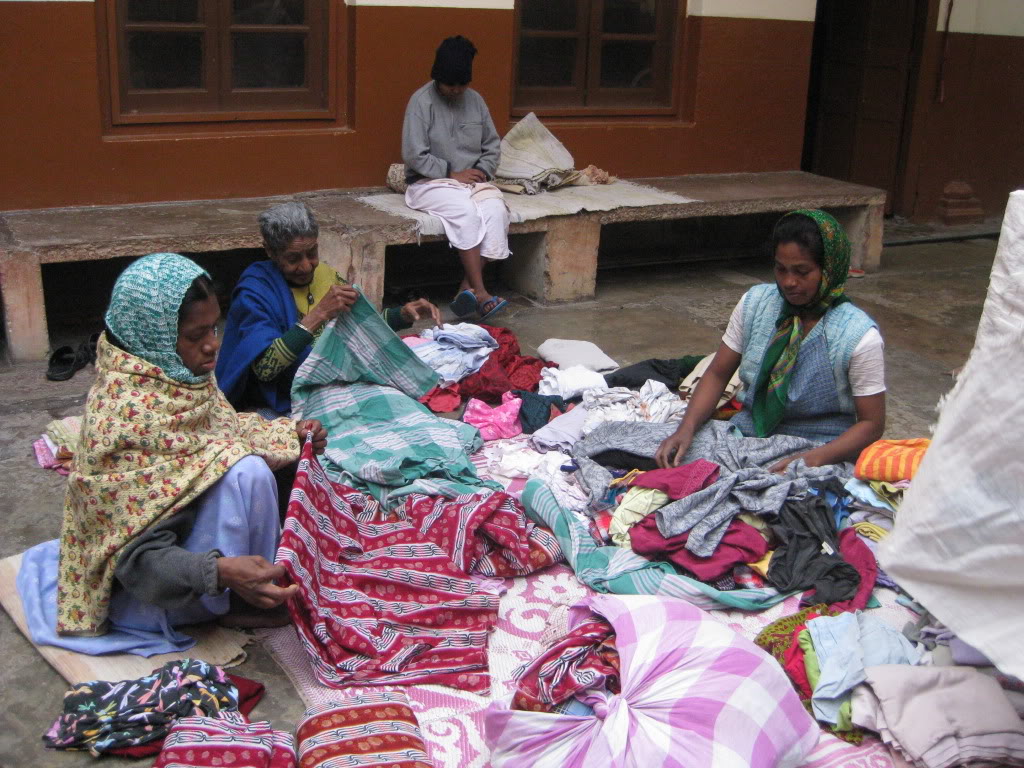The Transformative Processes in the
Context of India
home . questioning & envisioning . equal opportunity . valuing the devalued . integrating . discernment . combining
Valuing the Devalued
Valuing-the-devalued is the fight against the devalued “subordinate groups, and of the traits and activities associated with them” (Matthaei 8).
One of the most famous Gandhian movements was the boycotting of British cotton and the daily spinning of khadi or homespun cloth. In fact, the spinning wheel became a symbol of the entire independence movement. This tactic is often remembered as Gandhi’s way of keeping his followers engaged in the ideals of movement but it was also one of the many ways Gandhi strove to value the devalued. The spinning was simple, common, women’s work. By making it a symbol of the independence movement Gandhi was showing his appreciation for this kind of work and also including women in the movement. Gandhi strove to include women at all levels of the struggle for independence.
In India there is a severe problem of violence against women. Women had become so devalued in society that there was no protection for them. At its worst, women are married for their dowry and then killed for it. The most common way for this to occur is in an “accidental” kitchen fire. More than a dozen women lose their lives in this way every single day. Slowly activist groups have been working to change this disregard for the wellbeing of women. A very important step towards the valuing of the worth of women took place in 2005 with the passage of the Protection of Women from Domestic Violence Act.
SOURCES:
Kitchen fires Kill Indian Brides with Inadequate Dowry, July 23, 1997, New Delhi, UPI
Matthaei, Julie and Barbara Brandt. "The Transformative Moment: Part II." From Richard Westra, ed. The Political Economy of the Present and Possible Global Future(s). (New York: Anthem Press, 2009), 8.
"The Dowry Prohibition Act, 1961". http://www.wcd.nic.in/dowryprohibitionact.htm. Retrieved 2006-12-24.

